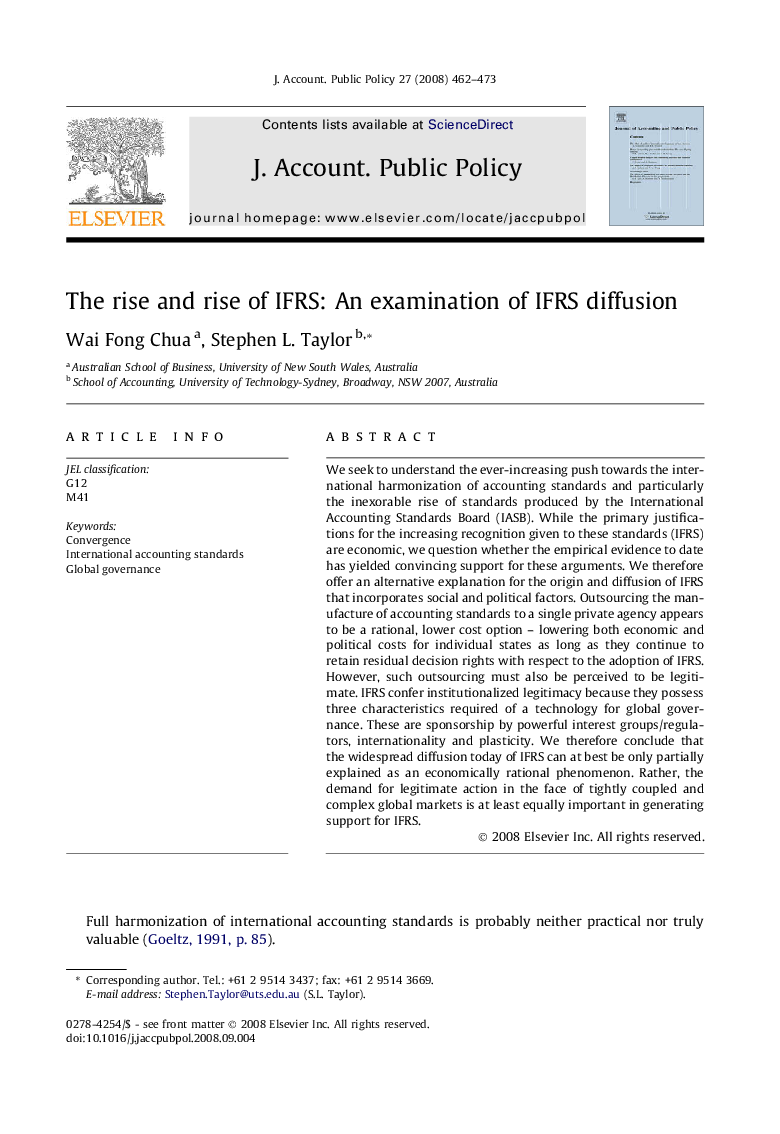| Article ID | Journal | Published Year | Pages | File Type |
|---|---|---|---|---|
| 1006089 | Journal of Accounting and Public Policy | 2008 | 12 Pages |
We seek to understand the ever-increasing push towards the international harmonization of accounting standards and particularly the inexorable rise of standards produced by the International Accounting Standards Board (IASB). While the primary justifications for the increasing recognition given to these standards (IFRS) are economic, we question whether the empirical evidence to date has yielded convincing support for these arguments. We therefore offer an alternative explanation for the origin and diffusion of IFRS that incorporates social and political factors. Outsourcing the manufacture of accounting standards to a single private agency appears to be a rational, lower cost option – lowering both economic and political costs for individual states as long as they continue to retain residual decision rights with respect to the adoption of IFRS. However, such outsourcing must also be perceived to be legitimate. IFRS confer institutionalized legitimacy because they possess three characteristics required of a technology for global governance. These are sponsorship by powerful interest groups/regulators, internationality and plasticity. We therefore conclude that the widespread diffusion today of IFRS can at best be only partially explained as an economically rational phenomenon. Rather, the demand for legitimate action in the face of tightly coupled and complex global markets is at least equally important in generating support for IFRS.
